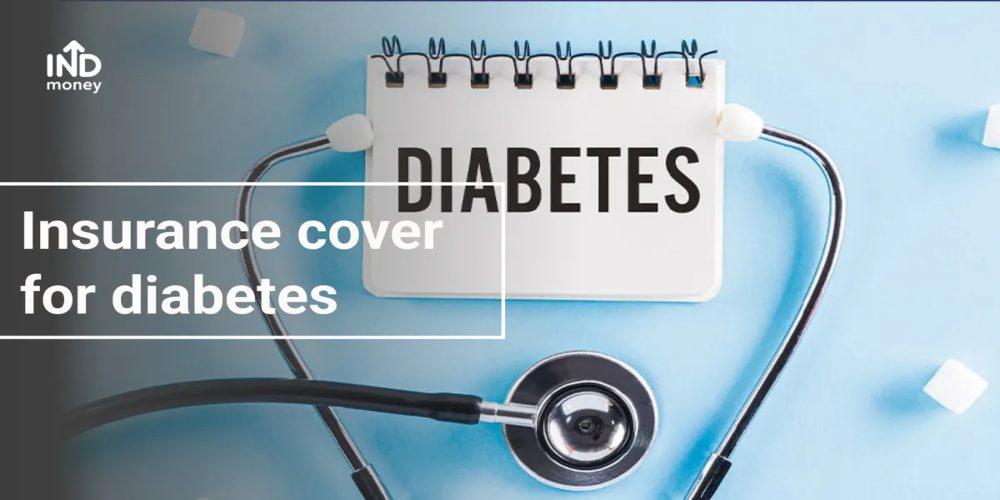Finance
Life Insurance Plans For Diabetics: What You Need To Know Before You Buy

Our changing lifestyles and other factors have ushered in numerous ailments in their wake. With inactive and sedentary lifestyles, genetic factors, nutritional changes, and urbanization at play, diabetes has steadily transformed into a significant lifestyle ailment that affects a significant chunk of the global population.
In this context, if you have diabetes, you should take proper steps to manage and treat the condition and secure your family’s financial future. It is a given that your overall risk quotient will be higher, and hence you should not neglect the importance of life insurance. When it comes to getting life insurance, you will have several options to choose from these days. You can find a specialized term plan for diabetic patients at leading insurance companies. These are tailored specifically to help those with this condition safeguard the future well-being of their families. At the same time, what happens if you take the conventional route toward purchasing life insurance? Here are a few things that you should keep in mind as a result
Eligibility For Life Insurance
Will you be eligible to obtain life insurance if you have diabetes? The answer is Yes. Those with either Type-2 or Type-1 diabetes may apply for a policy. However, it is easier to get one approved, in case you have successfully controlled the condition for at least 6-12 months with zero/negligible fluctuations. If you have taken your medicines regularly and kept diabetes under control, then you may well be eligible to get life insurance.
Those diabetic patients who are dependent upon insulin may also get approval for their life insurance policies. However, if your insulin dependence levels are negligible or lower, then your chances of approval automatically increase. It should also be mentioned that if you have any accompanying health problems or risks, such as high blood pressure or heart disease, then the risk levels balloon considerably, making getting approval for your life insurance policy near-impossible. If you also smoke or cannot keep diabetes in check, then the same result can be expected if you apply for any such plan. Your diabetes type also has a bearing on your eligibility for a life insurance policy.
Does The Diabetes Type Have Anything To Do With Life Insurance?
The type of diabetes does have a direct effect on your eligibility for life insurance. Here are some points worth mentioning-
- Type-1 Diabetes- This is considered to have a higher risk element than other types of diabetes. It takes place at a younger age in most cases and is usually more challenging to keep in check. Those with Type-1 diabetes may find it hard to get approval for life insurance policies; even if they do, they may have to pay hefty premiums. You can calculate the same with a term insurance premium calculator for your desired coverage amount.
- Type-2 Diabetes- This condition is usually diagnosed later in life and has a lower impact on the body. Those with this condition, if they can keep it under control, are perceived as low-risk policyholders by insurance companies. Yet, those who have any accompanying complications and depend on insulin may find it hard to get policy approval or pay higher premiums for the same.
- Gestational Diabetes- This is a temporary medical condition usually spurred due to hormonal changes in women who are pregnant. The best way is to wait for a few months after your child’s birth before you apply. If the condition disappears, then you will find it easier to apply for and get a life insurance policy at a lower rate.
But that’s not all; the insurance company may ask you several questions in order to assess your eligibility. Here’s a guide to the same.
What Are The Questions That The Insurance Company May Ask You?
Here are the questions that you may have to answer while applying for a life insurance policy:
- The age when you were diagnosed with the condition (the earlier you were diagnosed, the higher the risk)
- The type of diabetes
- The A1C level (This indicates severity. The ideal figure is 7, and anything below it means you have the condition under control. Those with AC1 up to 8.5 may apply, although parameters may vary across insurance companies)
- Regular fasting blood sugar levels (Those with levels up to 180 may apply, although the ideal threshold is 140) and fructosamine (1.5-2.5 is the ideal figure)
- Your medications and treatment course
- Progress of treatment and results
- Frequency of doctor visits
- Any additional health problems
- Your height, weight, income, profession, general medical history and health of your family, marital status, and lifestyle habits (smoking)
Even though you may find it difficult to obtain life insurance if you have diabetes, ensure that you offer honest and accurate information to the insurance company. This will help you bypass issues in the future, such as policy termination or claim rejection, when the company finds out that you concealed any fact. You can always check out a dedicated term plan for diabetic patients if you want to bypass the conventional application route.

-

 Business3 years ago
Business3 years agoHow to Do Long-Distance Moves with Children
-

 Travel2 years ago
Travel2 years agoQuick Guide: Moving To Santa Rosa?
-

 Real Estate3 years ago
Real Estate3 years agoWhy Dubai Festival City is a Great Neighbourhood for Young Learners
-

 Business3 years ago
Business3 years agoIs Guest Posting a Good Inbound Marketing Strategy?
-

 Business1 year ago
Business1 year agoThe Ultimate Guide To Thriving In Your Printing Franchise
-

 Business1 year ago
Business1 year agoExploring The Benefits And Challenges Of Restaurant Franchising
-

 Tech3 years ago
Tech3 years agoCyber Table That Will Change Your Life
-

 Lifestyle1 year ago
Lifestyle1 year agoDallas’ Hidden Gems: 6 Must-Try Restaurants Off The Beaten Path!











Recent Comments